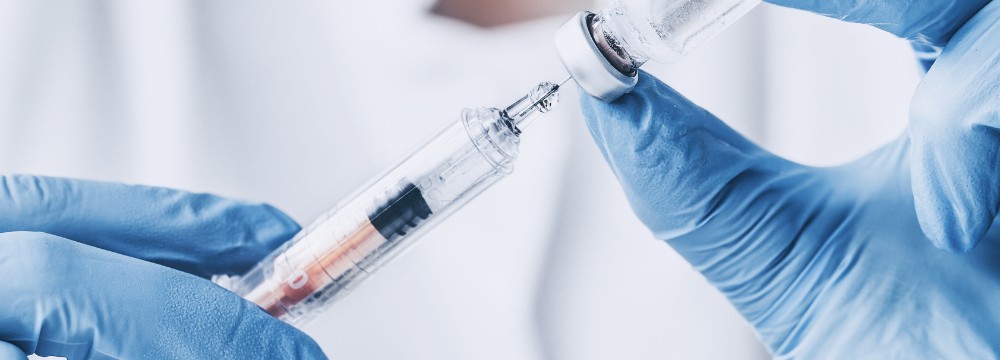Defined as the inability to get and keep an erection firm enough for sex, Erectile dysfunction (ED), or impotence, can cause a great deal of stress for the many men who suffer from it. It may also affect one’s self confidence and interfere with their social relationships.1 Thirty million men in the U.S., and 150 million men worldwide2, experience some form of erectile dysfunction – with it affecting 40 percent of men age 40, and 70 percent of men age 70.3 Because such a large portion of the population has struggled with this condition, researchers in the medical community are always looking to enhance clinical strategy around the diagnosis and treatment of ED.
Each year, the American Urological Association (AUA) releases new guidelines to offer better care for urology patients. In addition to providing guidance to clinicians, it provides invaluable information to men with ED.4 This year’s guide was no exception. The sexual response cycle is comprised of four main steps: desire, arousal, orgasm, and resolution – with ED occurring in the arousal stage. Since there are a variety of physical and psychological issues that act as a catalyst for this dysfunction, your doctor may have to conduct a variety of tests to determine the root of the problem in your specific situation.5 One of the cornerstones of this year’s guidelines was the overwhelming support for a shared decision-making process and open lines of communication between doctor and patient; this will determine the best course of care. Including the patient’s partner in the treatment process was also advised.2
With 25 new recommendations, this year’s guideline also touted the benefits of measuring testosterone levels. While erections depend on testosterone, the correlation between the two is still being examined by researchers. There are some men who maintain normal erections, despite having lower levels of this hormone. However, low testosterone levels overlap with many of the other markers that play a role in ED; a few of these include obesity, type 2 diabetes, and cardiovascular disease.6 Doctors doing a deep dive into possible causes of your condition won’t want to overlook this possible problem.
The AUA is now recommending that physicians inform their patients that erectile dysfunction often acts as a precursor to future health conditions, especially heart disease. At its core, ED is a circulatory issue – which explains why it has a strong link to the heart and its ability to adequately pump blood to the rest of the body. One special health report published by Harvard Medical School mentioned that atherosclerosis in the arteries supplying blood to the penis can prevent the increase in blood flow needed to start or maintain an erection.7
Staying aware of the risks and benefits of each treatment is another topic covered in 2018’s guideline. Your Urologist will conduct a thorough medical, sexual, and psychosocial evaluation – and in some cases, conduct lab tests.4 They will determine which of the FDA-approved oral medications for ED may be appropriate for you, and discuss your personal beliefs surrounding each treatment. Addressing the psychological component of ED, the guideline endorses referral to a mental health professional who may alleviate any anxiety a patient has surrounding the condition and its effects; this may mitigate performance anxiety. The AUA also suggests that there be a discussion of diet, exercise, and overall health – which are all closely connected to a patient’s sexual health.
While our comprehension of ED is ever-evolving, the newest guidelines stem from evidence-based tests and studies, and serve to work toward helping those with this condition maintain a better overall quality of life. If you’re suffering from urological issues such as erectile dysfunction – you aren’t alone. Seek the advice of an experienced Urologist who can help. Dr. Richard Natale is a board-certified Urologist specializing in men’s health issues. His venerated practice offers a host of treatment options for ED, including penile implant surgery. For more information, or to schedule a consultation, call (704) 786-5131.
1Mayoclinic.org/diseases-conditions/erectile-dysfunction/symptoms-causes/syc-20355776
2Auanet.mediaroom.com/2018-05-08-AUA-Releases-New-Clinical-Guideline-for-Diagnosis-and-Treatment-of-Erectile-Dysfunction
3Huffingtonpost.com/2013/06/11/erectile-dysfunction-young-men-age-40-younger_n_3405085.html
4Auanet.org/guidelines/male-sexual-dysfunction-erectile-dysfunction-(2018)
5Mayoclinic.org/diseases-conditions/erectile-dysfunction/symptoms-causes/syc-20355776
6Webmd.com/erectile-dysfunction/erectile-dysfunction#1
7Health.harvard.edu/blog/erectile-dysfunction-often-a-warning-sign-of-heart-disease-201110243648









